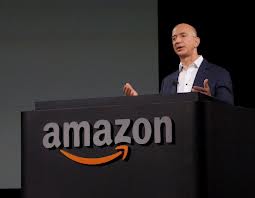Amazon’s Supreme Court Request for Equal Weights & Measures:
The obvious downside of equal weights and measures in online retail is both profound and important. A dynamic tax system can serve as a powerful tool for leveling up the playing field… for what a smaller online retailers may lack in buying power and market reach of companies of the size of Walmart and Amazon they can make up for it through government leniency through a dynamic (situation fluency) tax system.
Amazon has changed retail and Amazon knows its size has now attracted the taxman and while they are officially supporting the tax they desire to stop new players from entering the market by exploiting the tax loophole that ironically built Amazon to what it is today.
Amazon officially supports the federal law called the Marketplace Fairness Act which requires that all online retailers collect tax and have agreed to pay it in states such as New Jersey and California but where Amazon does have a problem with the dynamics of the tax law. For the law is very liberal and volume driven as small online retailers would still be exempt of paying this tax in some states.
We all know that Jeff Bezos is one intelligent entrepreneur and his request for the use of equal weights and measures in our tax law through his Washington, D.C., attorney Ted Olson is both fair and reasonable but the question is if its good for America? Being on the other-side of the coin it does seem hypocritical for the role of government is to try and foster competition which sometimes means taxing the larger payers more than one would the little guy. The obvious downside of equal weights and measures in online retail is both profound and obvious for little payers who often lack the buying power and reach of companies like Wallmart and Amazon would still have at least one small tax advantage through this kind of situation fluency tax system.
From Amazon’s perspective it is clear that for one to secure long term dominance they need a uniform tax law that does not discriminate between the size of the online retailer as all would be taxed evenly. So while it was ok for Amazon to get big on this tax loophole they appear to fear a new wave of Facebook driven affiliates doing an Amazon on Amazon itself.
There is no doubt that Amazon is a great company and had served America well but at the same time it is now a significant player and it has now entered the nostrils of the one who is greater (competition watchdogs). The bottom line is clear and that is that a more dynamic and flexible tax system is more practical and can better serve the American consumer by reducing market entry obstacles for new businesses through its volume related tax law giving a rare advantage to smaller players. While Jeff Bezos is right from a purely legal standpoint – the truth is – that if a legalistic tax system is applied equally to all this could have serious ramifications and serve a major blow to competition itself. For in my opinion governments should encourage competition through a flexible tax system for when it comes to price it is competition that ultimately keeps us all honest.
[box type=”shadow”] Article by Peter Malaczynski:
Article by Peter Malaczynski:
Peter is the chief engineer at HAGOOLE Price Comparison in charge of analytics, statistics and strategic game theory. Follow Peter @HaggleSearch
*Blog post views are my own and not those of my employer [/box]






